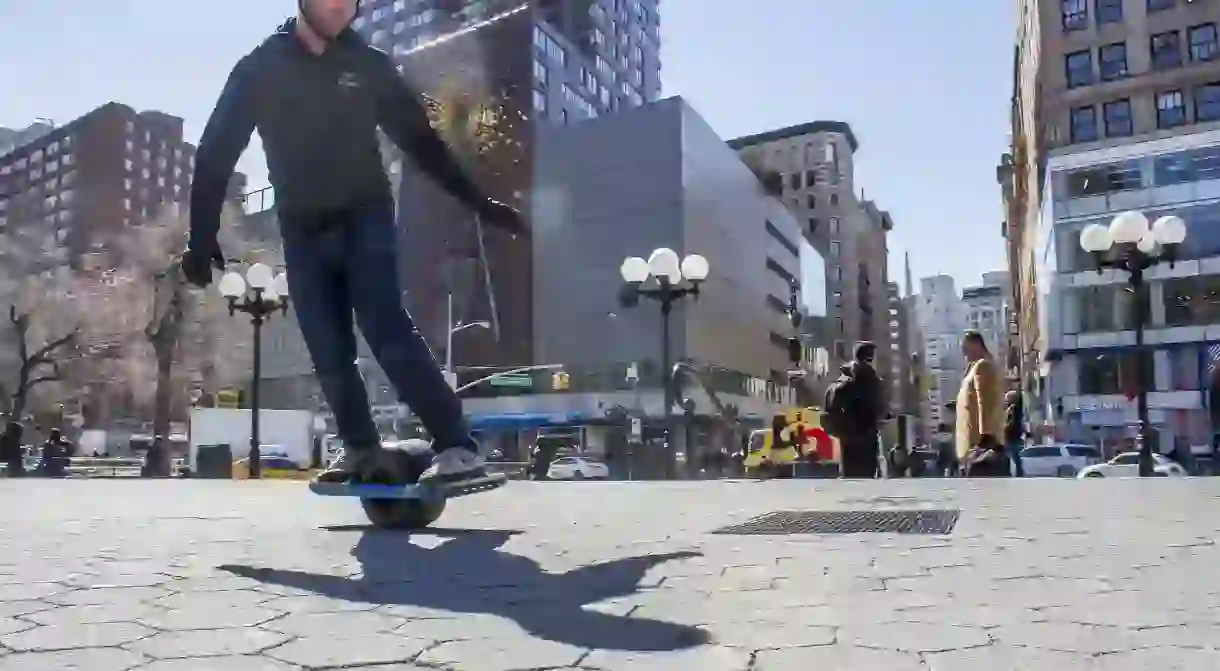Urban Transport Tech Could Change the Way We Commute

If you work in a major city, even the last mile of your commute can be stressful. But new technologies are making urban transport a lot less boring, and much less hassle.
A number of personal transport technologies have emerged in recent years. Perhaps the first of this wave of new urban transport was the Segway, which is still used today, but doesn’t exactly scream cool. When hoverboards – electric skateboards that don’t really hover – first hit the streets, it was easy to declare the future to be here, and all sci-fi movies predictions fulfilled. But the technology kept on improving.
Not only were these devices becoming more powerful, they were also becoming more mobile and easier to use. While some of them proved to be momentary fads, others have emerged as genuine options to get around.
The OneWheel aims to be a practical and enjoyable means of transportation. The motorized skateboard features – as the name suggests – one giant wheel. The latest version, the OneWheel+, can get up to 19 mph and has a 5-7 mile range.
“Some of our users are focusing on the sports side or the weekend warrior side,” OneWheel CEO and Founder Kyle Doerksen said. “Other people are riding it every day to get to their train, to get to their office, to get around campus.”
Transportation in our cities is expected to change dramatically in the near future. Self-driving cars are already on the streets of Pittsburgh, flying cars have been mentioned in Dubai, and Elon Musk is adamant the Hyperloop, a low-pressure tube firing passengers in pods long distances, will work. Among this new transportation mix will be a place for personal transport solutions that are efficient, mobile, and entertaining. When prices come down, you can expect to see many more commuters hop off a train and onto an electric board of some kind in the future.













